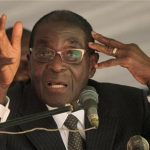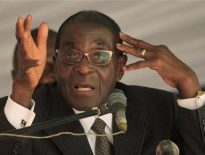PARIS (Reuters) – Parliamentary elections in Guinea will take place before year-end, President Alpha Conde said on Monday, marking the final step in the West African state’s transition from military to civilian rule and helping it unlock billions of dollars of aid.

Investors and donors have been waiting for the election ever since Conde postponed them in April to fix problems in the vote registration system. The European Union has said it will only resume full cooperation after the legislative election in Guinea, the world’s largest exporter of aluminum ore bauxite.
“We hope to establish a calendar with the International Francophonie Organisation and the CENI (Independent National Electoral Commission) so that the elections can take place as soon as the rainy season ends,” Conde said after a meeting with French President Francois Hollande in Paris.
The rainy season runs from about April-May to the end of October-early-November.
Guinean opposition parties welcomed the postponement earlier this year saying the move boosted the credibility of the poll.
“I fought for 50 years for democracy and I suffered from rigged elections for 20 years so I want clean elections,” Conde told reporters.
The Guinean government had planned to revamp the voter registration process, including a census and new registration drive, but relented after opposition parties said it would be unconstitutional to make the changes between the 2010 presidential vote and the upcoming parliamentary election.
The stand-off had heightened tension in the coup-plagued nation and had led to clashes between security forces and opposition supporters.
Conde, who won a hotly contested 2010 second-round presidential election against Cellou Dalein Diallo, has promised to heal the country’s deep ethnic and political divisions, but opposition leaders say he has made little progress.
According to Guinea’s constitution, the president has to confirm the date of an election 70 days before it is held.





